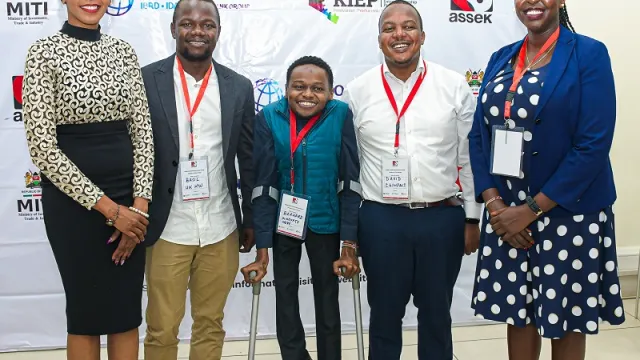World Bank steps in to turn startups into investor magnets

World Bank steps in to turn startups into investor magnets
Small and medium enterprises (SMEs) and local startups in Kenya are now poised for exponential growth as they gain access to comprehensive business training programs.
This move follows a strategic collaboration between the World Bank and the Kenya government, which is set to facilitate the formalization of business development services, marking a pivotal moment in Kenya's entrepreneurial landscape.
The Association of Startup and SMEs Enablers of Kenya (ASSEK), a key player in this transformation, has rapidly expanded its membership from 40 to 150 entrepreneur support organizations (ESOs).
Tailor-made business programs
These ESOs are now at the forefront of creating tailor-made business programs to address the sector-specific needs of local businesses.
During the ASSEK Ecosystem Enablers Forum 2024, ASSEK's Chief Executive, Mercy Kimalat, highlighted the organization's commitment to supporting SMEs and startups' growth plans through targeted business training.
“We have transformed SMEs and Startups by matching them with the right coach and mentor to help them grow. This is done by ensuring they have access to international opportunities though the stakeholders that we have partnered with. This has enabled many to sell their services and products regionally and beyond,” she said.
By matching entrepreneurs with the right coaches and mentors, ASSEK ensures access to international opportunities, enabling many to expand their services and products regionally and beyond.
Furthermore, ASSEK is facilitating access to seed funding and diversified financing options tailored to the needs of SMEs and startups. This includes seed grants and technical support, effectively de-risking small businesses and accelerating their path to success.
Read also: Branch-Solv Kenya alliance rolls out Sh1M SME’s loan service
Incentivizing investment
Notably, ASSEK's involvement in the formulation of the Startup Bill has created a conducive environment for local and international investors to catalyze local innovations. By fast-tracking the development of new products and incentivizing investment, this framework benefits both innovators and investors alike.
The establishment of ASSEK five years ago has led to increased inclusivity in the ecosystem, standardized approaches, and collaboration in attracting investment opportunities. Moreover, ASSEK's initiatives are driving job creation, value addition for stakeholders, and policy advocacy.
As ASSEK spearheads the formation of a regulatory body for ESOs, the future looks promising for startups and SMEs in Kenya. With access to professional business support and investor linkages, these enterprises are primed for rapid scalability and international market penetration.
In a landscape where most small businesses lack access to professional support services, the World Bank's intervention alongside ASSEK's initiatives represents a significant step towards fostering a vibrant and inclusive entrepreneurial ecosystem in Kenya.



